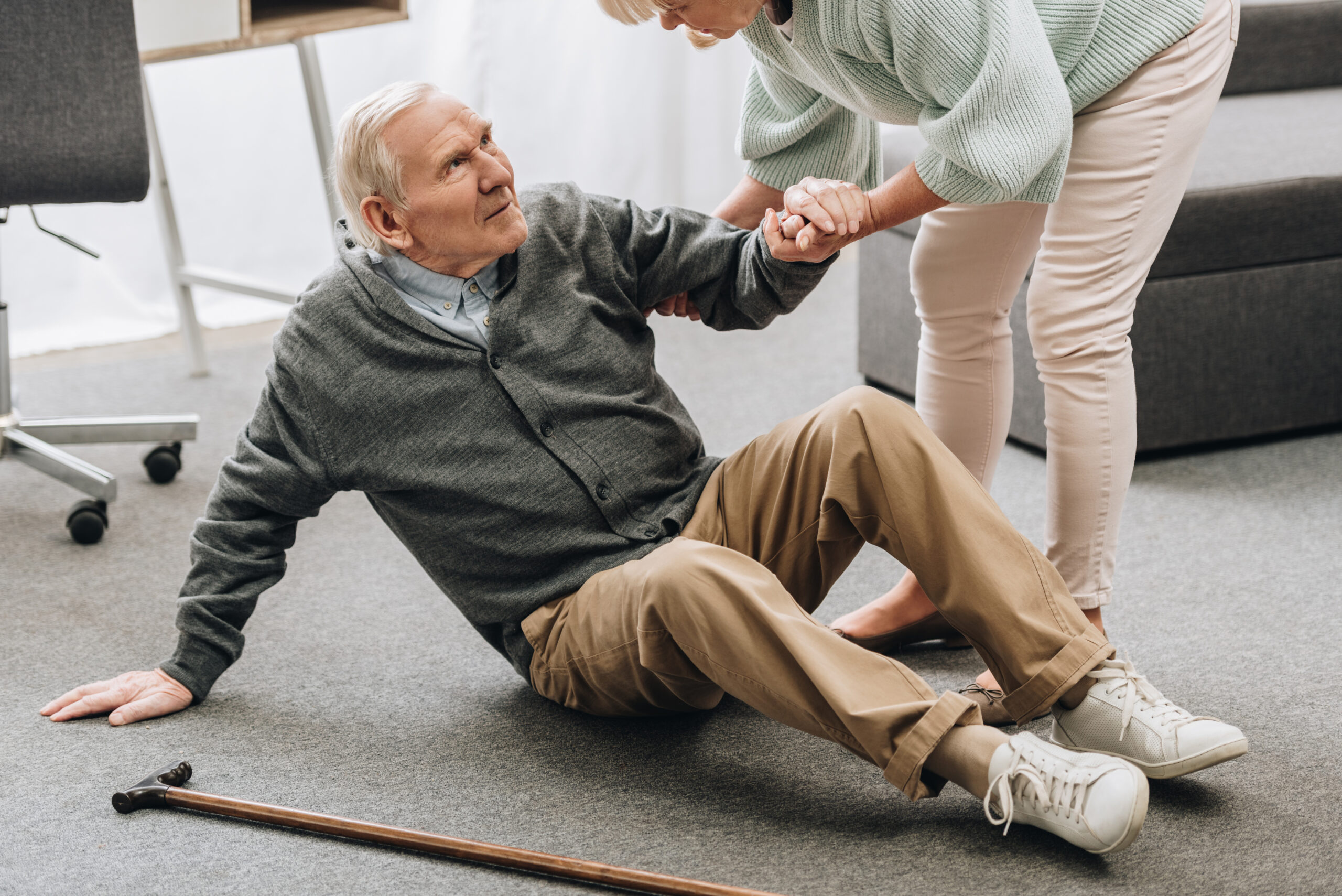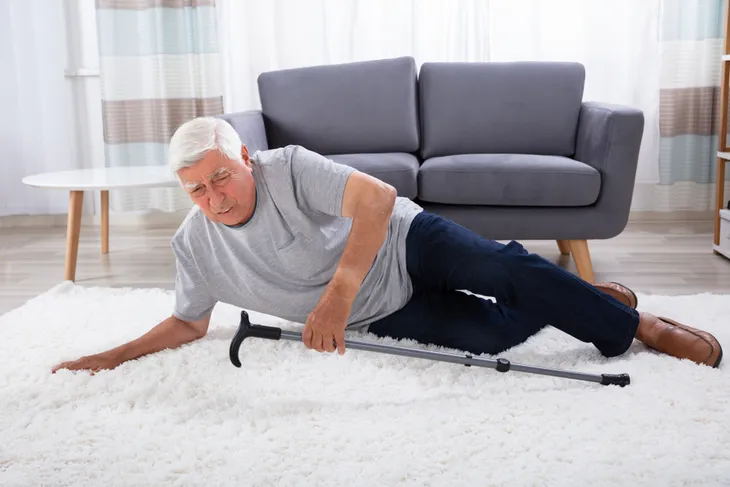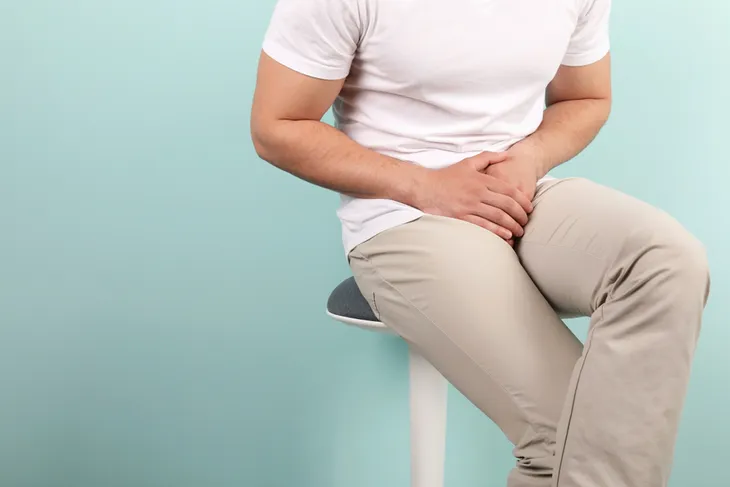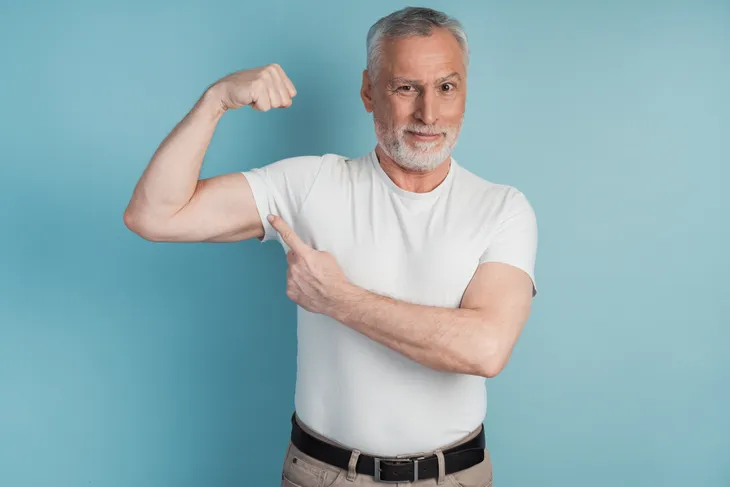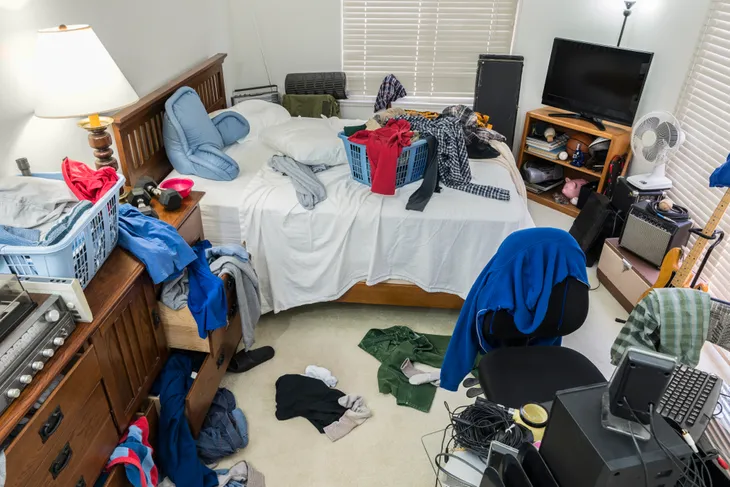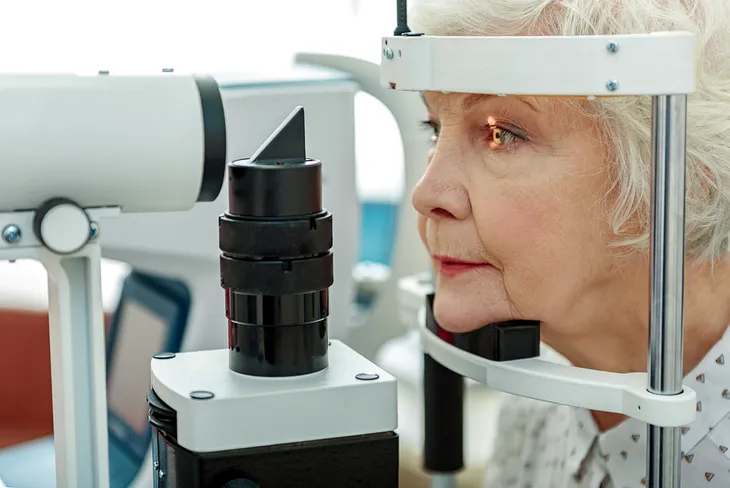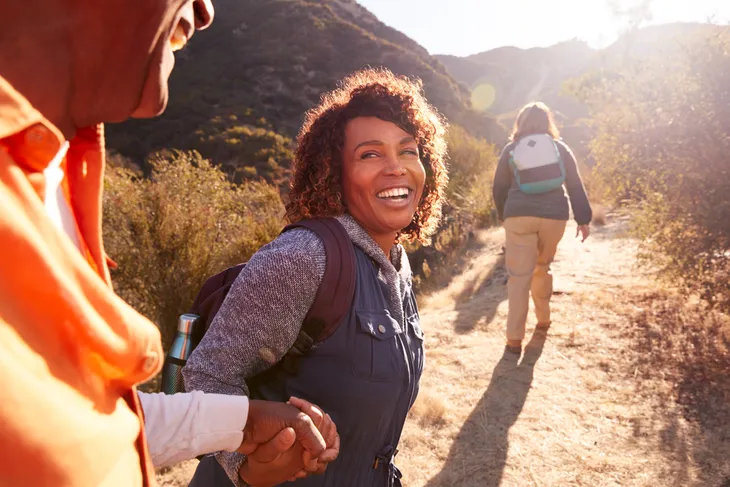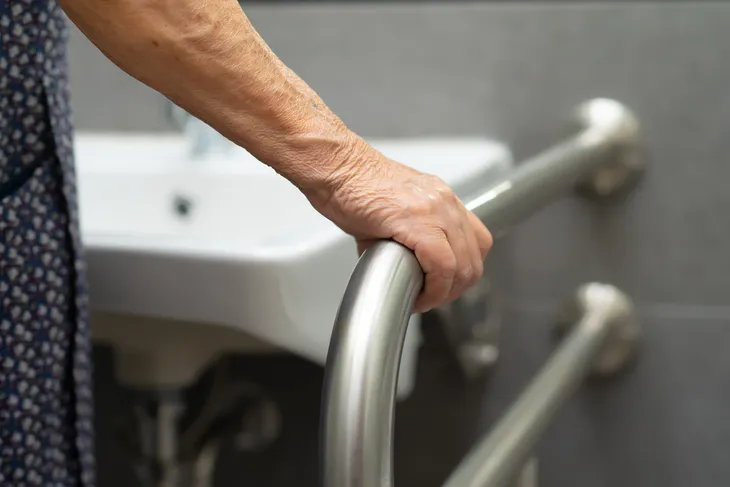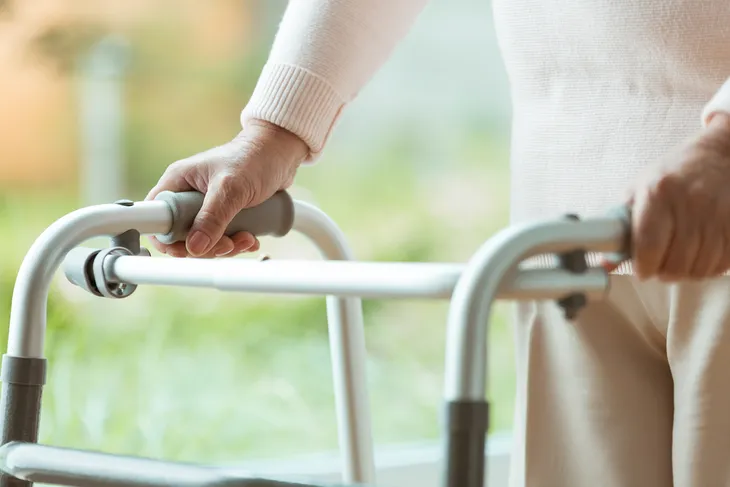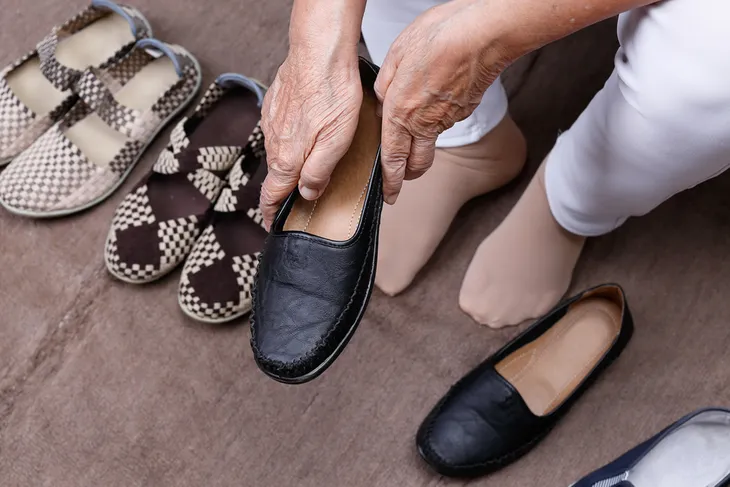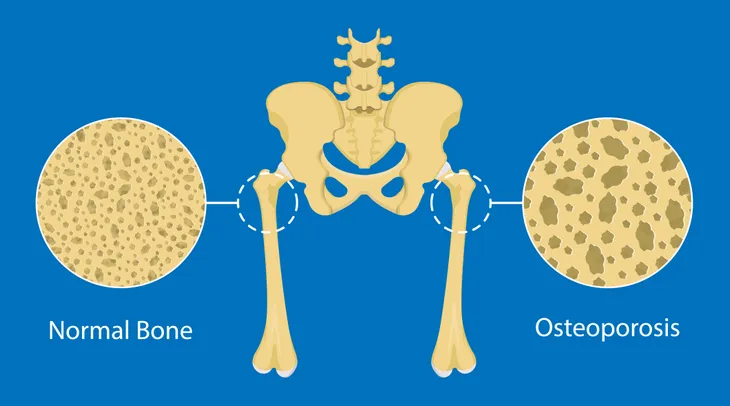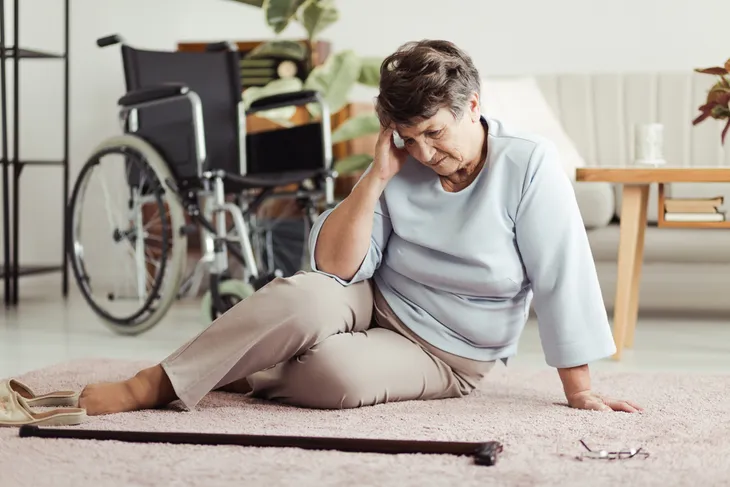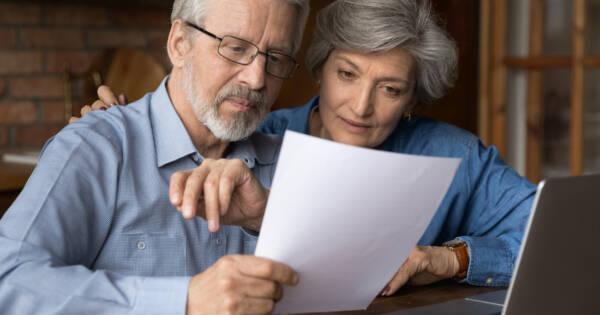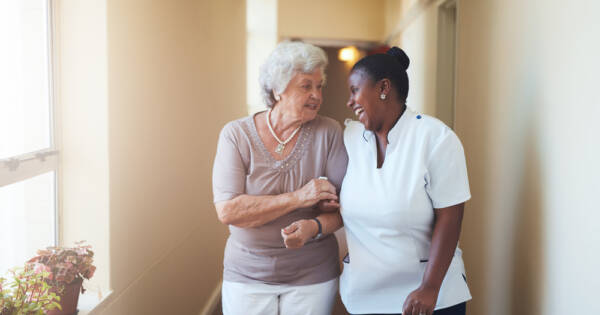- Suffering a fall can be scary and unsettling.
- Certain health conditions, lost muscle mass, and safety hazards can cause falls in seniors.
- Recovering from fall-related injuries can be more difficult in your senior years so it’s important to understand why they happen and what you can do to prevent falling.
Suffering a fall is never fun, whether you’re 20 or 80. But falls pose a greater risk for older adults, which is why you should do everything you can to prevent them from happening. According to the Centers for Disease Control and Prevention (CDC), 3 million seniors are treated in the ER for fall injuries every year and over 800,000 are hospitalized. What’s more, the source says one out of five falls causes a serious injury like a broken bone or head injury.
Luckily there are simple things you can start doing that can help protect your health and prevent falls, such as staying active, prioritizing balance exercises, and fall-proofing your home. Protect your health by getting informed. Here’s a look at the common causes of falls in older adults. We’ll also look into a few simple, yet effective tips to help prevent falls.
What Causes Seniors to Fall?
There are many reasons why a senior might fall. For starters, it may be due to poor eyesight or hearing combined with poor reflexes. Seniors may also experience a fall from wearing unsafe footwear, such as backless shoes or high heels. But that’s not all.
Certain health conditions and having weak muscles can also increase your risk of falling. As can safety hazards in your home. Let’s take a deeper look at some of these common causes next!
Health Conditions That May Cause Falls in Seniors
According to the National Institute on Aging (NIA), certain health conditions can affect your balance and increase your risk of falling. These include heart disease, and problems with your thyroid, feet, nerve, or blood vessels.
Health conditions that cause you to rush to the bathroom, like incontinence, can also increase your risk of falling. Having dementia or some type of cognitive impairment is also a risk factor. Taking certain medications may also increase your chances of falling, such as medications that have a side effect of confusion or dizziness. If you’re worried about how your current health conditions can impact your risk of falling, talk to your doctor.
A Decrease in Muscle Mass May Cause Falls in Seniors
Another common cause of falls in seniors is decreased muscle mass. According to the National Library of Medicine, “Muscle mass decreases approximately 3–8% per decade after the age of 30 and this rate of decline is even higher after the age of 60.” Age-related muscle loss is known as sarcopenia.
A decrease in muscle mass can cause problems with balance and gait, both of which can increase your chances of falling. The NIA also says that lost muscle mass can cause your blood pressure to drop when you stand up from sitting or lying down, known as postural hypotension, which can also cause falls.
Safety Hazards in the Home May Cause Falls
Safety hazards in your home can also pose a threat and cause falls. For example, clutter anywhere in your home is never safe. Try to always pick up items. Items on the floor, such as shoes, cords, and area rugs, can also be tripping hazards. Awkward furniture arrangements that make it hard to get around can also increase your risk of falling.
According to Lifeline, you should also be mindful of lighting in your home, particularly at night. Poor or no light can lead to falls. Other safety hazards to look out for in your home include no handrail on the stairs, no grab bars in the shower or near the toilet, and loose bath mats. You should also walk around your property and make sure there aren’t tripping hazards outdoors too. Watch for broken or uneven steps and ground.
What Can Happen After a Fall
Not all falls will cause an injury, but the CDC says one out of five will result in a serious injury. This is a cause for concern for seniors because it’s not as easy to recover from an injury when you’re older.
A fall may cause a broken bone in the hip, ankle, or wrist. If you hit your head, you may suffer a head injury. The source says this can be particularly serious for individuals who take medications that thin the blood. Seniors who fall and hit their heads should see a doctor immediately to rule out a brain injury.
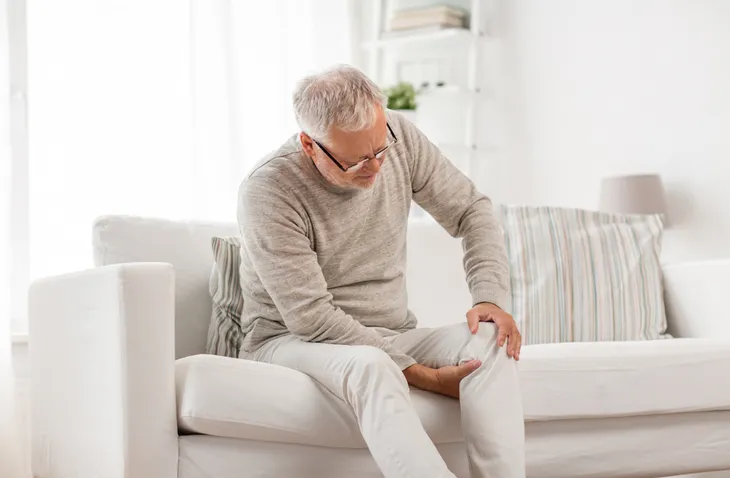 Shutterstock
ShutterstockHow Seniors Can Prevent Falls
Suffering one fall is enough to make you afraid of having another one. While no one wants to suffer a fall, it can make some seniors so afraid that they start withdrawing from daily activities. This is a problem because becoming more inactive can increase your chances of falling even more. Instead of withdrawing from your daily activities, take steps to prevent falls.
It’s also important to talk to your doctor to evaluate your risk of falling. In the meantime, here are a few tips to help prevent falling in the future.
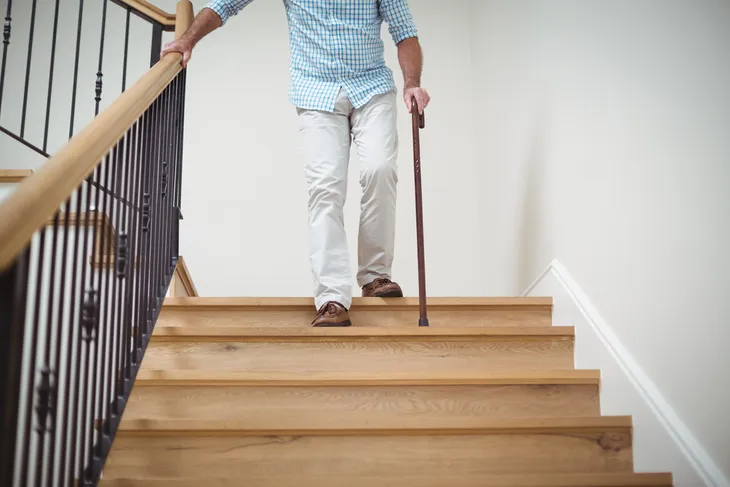 wavebreakmedia / Shutterstock
wavebreakmedia / ShutterstockGet Your Eyes and Hearing Checked
Since poor eyesight and hearing can increase your risk for falls, it’s important to have it checked regularly, especially as you get older. The CDC says seniors should have their eyes checked by an eye doctor at least once a year.
The source also says if you have progressive lenses or bifocals, wear a pair of glasses with only your distance prescription for outdoor activities like walking. This can help prevent distortion. Having your hearing checked is important too. If a hearing aid is recommended, make sure it fits properly and wear it regularly.
Stay Physically Active
Regardless of your age, physical activity is important for your health. Despite knowing its importance, too many adults are inactive. But it turns out, staying physically active, especially in your senior years, can help prevent falls and fractures. Exercise helps improve muscle strength and it can help improve your flexibility and balance.
According to the CDC, adults should aim for 150-minutes of moderate-intensity physical activity plus 2-days of muscle-strengthening exercises every week. If you’re not already physically active, you should work with a professional to build an exercise program. There are also plenty of quick and easy ways for seniors to start moving like going for a daily walk. There are also effective yet simple at-home workouts you can try too.
Prioritize Balance and Strength Training Exercises
Another great way to prevent falls is to add balance and strength training exercises into your workout routine. One way you can do that is by practicing tai chi. Tai chi, also known as meditation in motion, can offer all sorts of mental and physical benefits for seniors and it’s suitable for all fitness levels. It can also help improve your balance, coordination, flexibility, and lower body strength — all of which can help prevent falls.
Practicing yoga is another effective way to improve your balance and muscle strength. It’s low-impact and can help build strength and improve balance and flexibility. The NIA also says you can “try lifting weights or using resistance bands to build strength.”
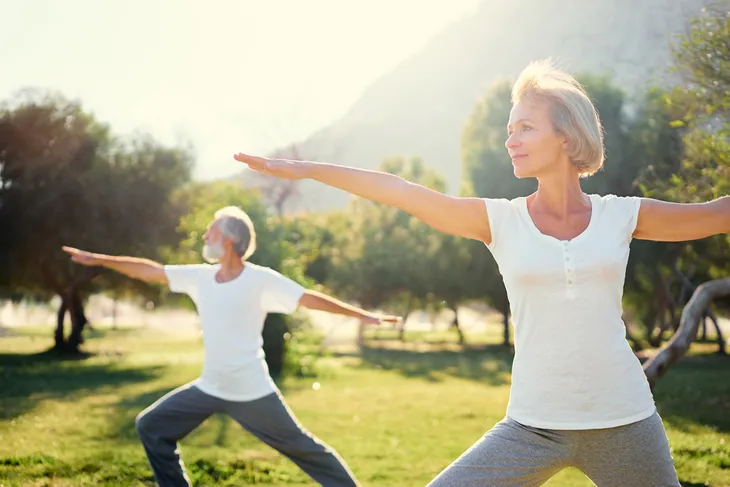 Shutterstock/kudla
Shutterstock/kudlaHow to Fall-Proof Your Home
According to the NIA, many falls happen at home. Luckily there are simple changes you can make to help prevent falls and ensure your safety. For starters, walk around your home and look for tripping hazards like clutter, unsecured rugs, and loose cords. Either remove these things or secure them in place.
The CDC says if you have stairs in your home, it’s also a good idea to ensure you have railings on both sides. Placing grab bars in your bathroom, such as near the toilet, inside and outside the tub or shower can also help prevent falls. Non-slip mats in the bathtub and on shower floors can help too. The source also notes that making sure your home has plenty of bright lights can also help prevent falls.
Use Assistive Devices if Necessary
Assistive devices, like canes and walkers, may be necessary and it’s essential to use them if you need them. But the NIA says to make sure the cane or walker is the right size so you can use it correctly. When using walkers, ensure the wheels roll smoothly.
The source also says if you borrow equipment from a friend, you should have your doctor check it to make sure it’s the right size for you and to ensure it’s safe to use. If you’re in the market for new equipment but don’t know where to start, the NIA suggests working with a physical or occupational therapist as they can help you decide which devices are right for you and they can teach you how to use them correctly and safely.
Other Ways to Prevent Falls
There are other small (yet still effective!) changes you can make to help prevent falls and fractures. For starters, invest in good footwear. Make sure your shoes support your feet, are low-heeled, and are non-slip. It might also be a good idea to wear shoes indoors to prevent slipping.
When venturing outdoors, watch out for uneven surfaces and be extra careful when the ground is wet or icy. It’s also a good idea to just stay indoors when the weather is bad. Luckily there are grocery and pharmacy delivery services available should you need anything while you stay home.
The Importance of Keeping Your Bones Strong and Healthy
Osteoporosis is a disease that weakens the bones. It’s often referred to as a silent disease because changes aren’t usually noticeable until a bone breaks. Unfortunately, your risk of osteoporosis greatly increases as you get older. So how is this relevant to falls?
The NIA says healthy bones may not prevent a fall but if you do suffer a fall, “healthy bones may help prevent serious injury.” Seniors are at risk for long-term disability when bones fracture or break so it’s important to maintain good bone health. One way you can do that is by making sure you get enough calcium and vitamin D. Maintaining a healthy weight and staying active can also help keep your bones strong and healthy. Talk to your doctor to find out how you can prevent osteoporosis and keep your bones healthy.
What to Do if You Fall
Suffering a fall can be scary but the NIA says it’s important to stay as calm as possible. If you fall, take a few deep breaths to help get over the shock of falling. If you’re hurt, don’t get up quickly as this can make the injury worse. Instead, the source suggests crawling to a study chair to help yourself up. But don’t rush it!
Using slow movements, place your hands on the seat of the chair and place one foot forward flat on the ground while keeping the other leg bent with your knee on the ground. Then, from the kneeling position and with your hands on the seat, slowly rise into the chair. The source also notes that if you’re hurt or can’t get up on your own, ask someone to call 911.
A fall may indicate an underlying health problem so it’s important to inform your doctor of any falls, even if they don’t cause an injury.
